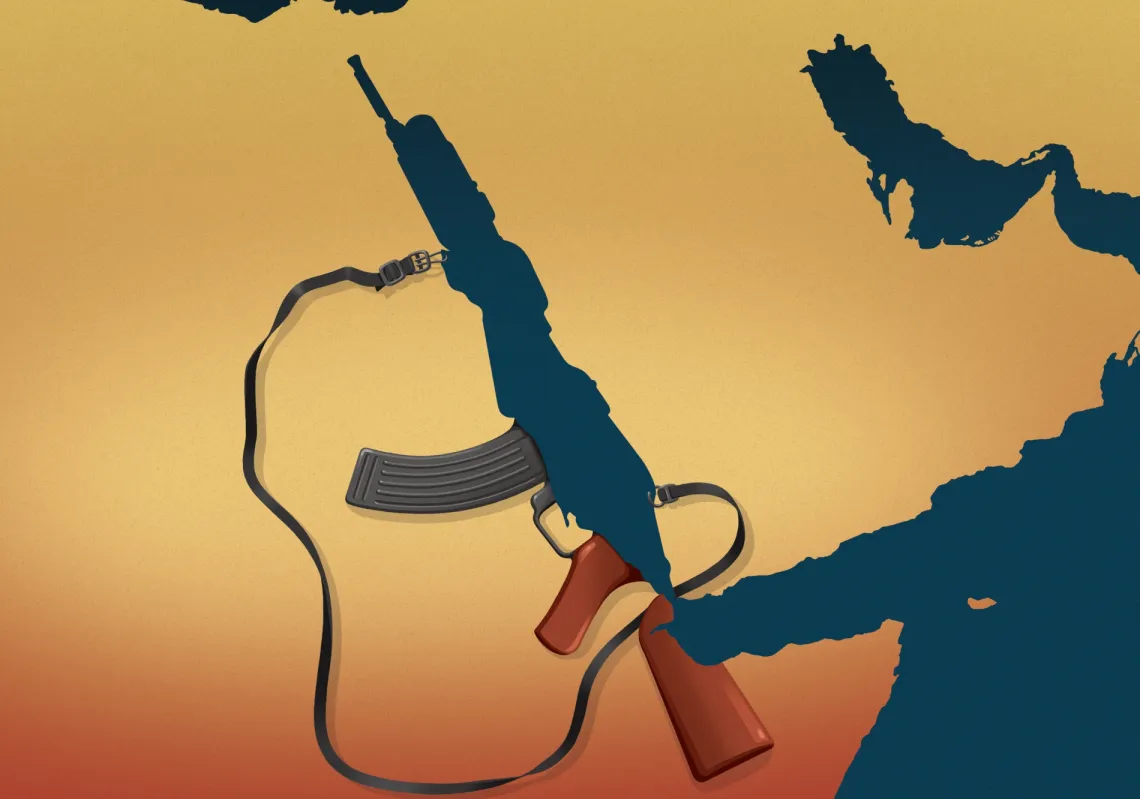Iran’s missile retaliation on the U.S. military presence in Iraq seems set to bring this round of escalation between Washington and Tehran to a close. The nearly weeklong crisis that began with the U.S.’s targeted strike on Qassem Soleimani has exposed key fault lines both between and within Washington’s main political camps. Republicans celebrated both the initial operation and deemed Iran’s final missile strike to be unworthy of a serious response. For their part, Democrats were torn between antipathy to Soleimani himself and criticism of key Trump decisions in the midst of a competitive primary.
REPUBLICANS BACK TRUMP, URGE NO FINAL RETALIATION
Among Republicans, reaction to the killing of Qassem Soleimani moved swiftly from support for the measure to support for de-escalation. As President Trump himself put it, “Soleimani made the death of innocent people his sick passion,” and his elimination "should have been done long ago.” But following Iran’s January 7 retaliatory missile strike, Trump indicated that there would be no military response, saying that that the administration “continue[s] to evaluate options in response to Iranian aggression” and promising that “the U.S. will immediately impose additional punishing economic sanctions on the Iranian regime.”
This transition — enthusiasm for the initial strike, and a willingness to let Iran’s bloodless missile response be the last word — was mirrored by Congressional Republicans at large. Senator Cruz, a leading rival of Donald Trump’s for the Republican nomination in 2016, even floated a resolution expressing official support for Soleimani’s killing, worded in nearly identical fashion to the 2011 resolution that commended the Obama administration for killing Usama Bin Laden.
Another former-rival-turned-ally, Senator Lindsey Graham, supported both the initial operation and Trump’s decision not to publicly retaliate for Iran’s missile attack: “In my view, retaliation for the sake of retaliation is not necessary at this time. What is necessary is to lay out our strategic objectives regarding Iran in a simple and firm fashion.”
COMPETING RESPONSES FROM MODERATE, PROGRESSIVE DEMOCRATS
By contrast to the relatively united Republican camp, Democrats are torn between rival camps as their presidential primary enters its most competitive phase. The relatively moderate candidates who remain — Joe Biden and Pete Buttigeig — have voiced a measure of satisfaction at Soleimani’s removal tempered with criticism for President Trump’s technical handling of the crisis.
Former Vice President Joe Biden called Trump “dangerously incompetent … No one wants war. But it’s going to take hard work to make sure we don’t end up there accidentally.” For his part, South Bend Mayor Pete Buttigieg said “there is no question that Qassim Suleimani was a threat to [American] safety and security, [but] … there are serious questions about how this decision was made and whether we are prepared for the consequences.”
On the progressive wing of the party, Senator Bernie Sanders unambiguously denounced what he referred to as Soleimani’s “assassination” at the hands of Donald Trump: “Trump's dangerous escalation brings us closer to another disastrous war in the Middle East that could cost countless lives and trillions more dollars.” Sanders also labeled the operation a “violation of international law” and added that, while Soleimani was a “bad news guy” he was also a “ranking official of the Iranian government.”
Caught between these two wings of the party was Senator Elizabeth Warren, still viewed as a leading contender for the nomination. Initially, Warren denounced Soleimani as "a murderer, responsible for the deaths of thousands, including hundreds of Americans,” even as she labeled Trump’s move “reckless.” Two days later, after facing criticism from activists, Warren referred to Soleimani as only "a government official, a high-ranking military official" -- and suggested that Trump may have launched the operation because he “could be facing an impeachment trial in the Senate [and] we know he's deeply upset about that.”








